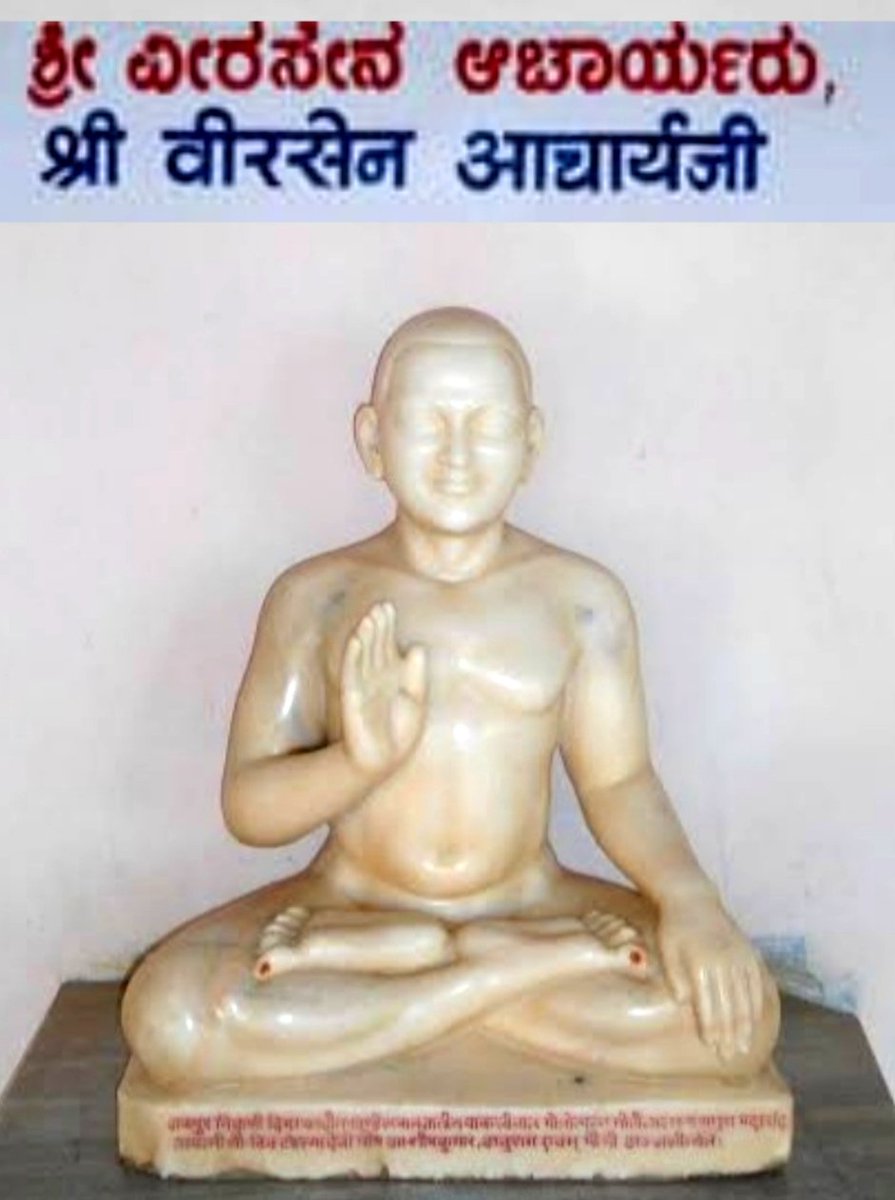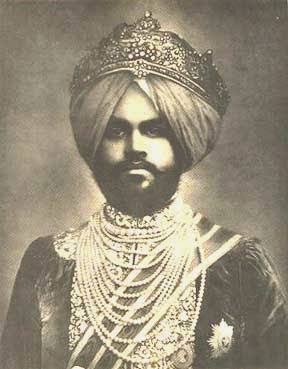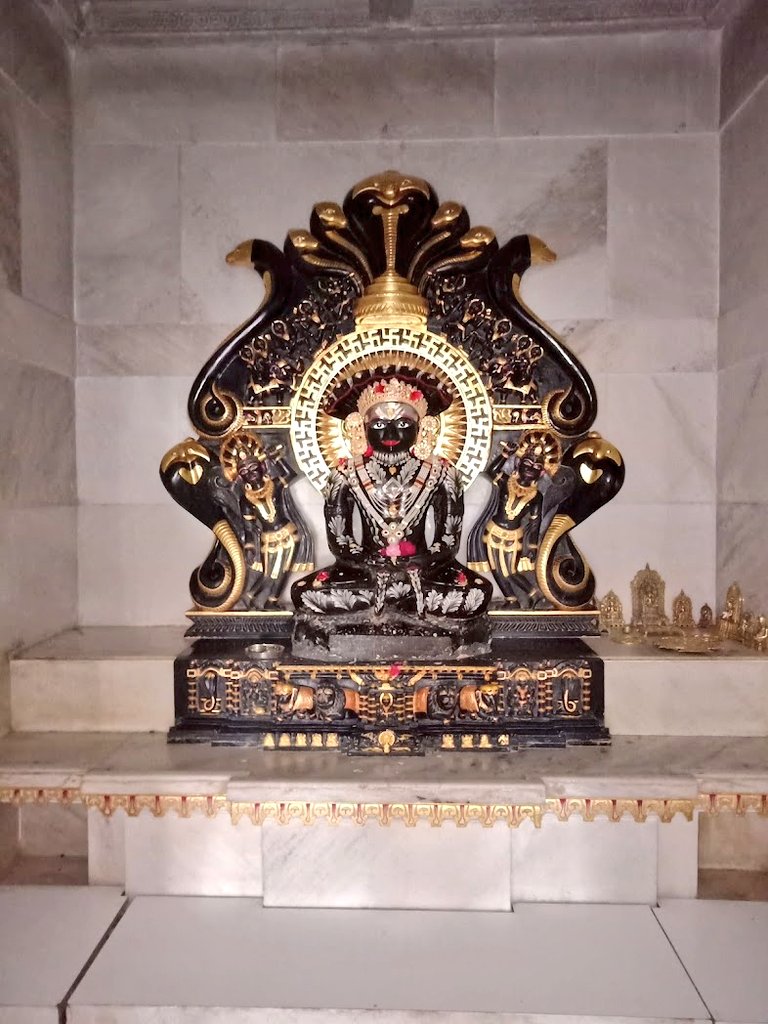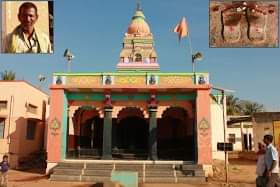
22.11.21
In memory of the 742th Birth anniversary/Janma Mahotsav of #Jain Acharya Jinkushal Suri ji. He is one of the prominent 4 Dadagurus of Khartar Gachh of the #Shwetambar sect
He was born in VS 1337 in #Rajasthan & belonged to the Chhajer clan. He was named Karman
-Thread-
In memory of the 742th Birth anniversary/Janma Mahotsav of #Jain Acharya Jinkushal Suri ji. He is one of the prominent 4 Dadagurus of Khartar Gachh of the #Shwetambar sect
He was born in VS 1337 in #Rajasthan & belonged to the Chhajer clan. He was named Karman
-Thread-

Glimpse of yesterday's celebrations in Derawar, #Pakistan. A group of bards singing stavans in memory of Dada Guru Jin Kushal Suri ji's Janmotsav. These events are being organised in Pakistan by a Sadharmik #Jain from #Delhi in order to revive Jain #heritage there.
At the age of 10, Karman Kumar was initiated into monkhood by Acharya Jinchandra Suri ji in VS 1347 & acquired the name Muni Kushal Kirti. In VS 1375, when he realised that Muni Kushal Kirti had the merit & ability, he endowed the designation of Vachan-Acharya on him at Nagaur. 



In the company of Jin Chandra Surishwarji, Muni Kushal Kirti took many pilgrimages & did one Chaumasa at Khand Sarai. After that chaumasa, Acharya Jin Chandra Suri ji fell ill. When he realized that his end was near, he designated Kushal Kirti ji as his successor. 

Kushal Kirti ji achieved the status of Acharya & acquired the name 'Jin Kushal Suri' at the Shantinath temple in Patan in VS 1377. This ceremony was organized by Tej Pal & his brother Rudra Pal. The whole town was decorated with beautiful gates, banners & flags. 

It seems, beggars & poor people were given charity in the form of gold, silver, elephants, horses, clothes etc. Most accounts of Acharya Jin Kushal Suri ji's life give special emphasis to 2 great pilgrimages (Chhah-ri Palit Sangh Yatra) of which he was the spiritual leader. 

The 1st sangh was organized by a Shrimal from #Delhi named Seth Raypati & 2nd by Seth Tejpal. He obtained a farmaan from Emperor Tughluq saying that all necessary assistance be given to the sangh under the leadership of Jin Kushal Suri who would be travelling to Palitana & Girnar 



En route, Jin Kushal Suri ji performed many Pratishthas of Jin pratimas, when they arrived at Shatrunjaya he consecrated idols of Jinpatisuri, Jineshvarsuri & other gurus of the past. After proceeding on to Girnar, the pilgrimage was completed. 



At that time, there were serious problems of backsliding among the #Jains of Sindh. There was a wide spread of wrong beliefs & Himsa, people were losing faith in dharma. The Jains of #Sindh invited Jin Kushal Suri ji to revive people’s faith & curb sins. 



He agreed & succeeded in bringing about a major revival there. He spread the message of non violence, charity, mercy and true faith in the region of #Sindh. It is said that because of his extraordinary charisma he was able to influence 50,000 people into #Jainism. 


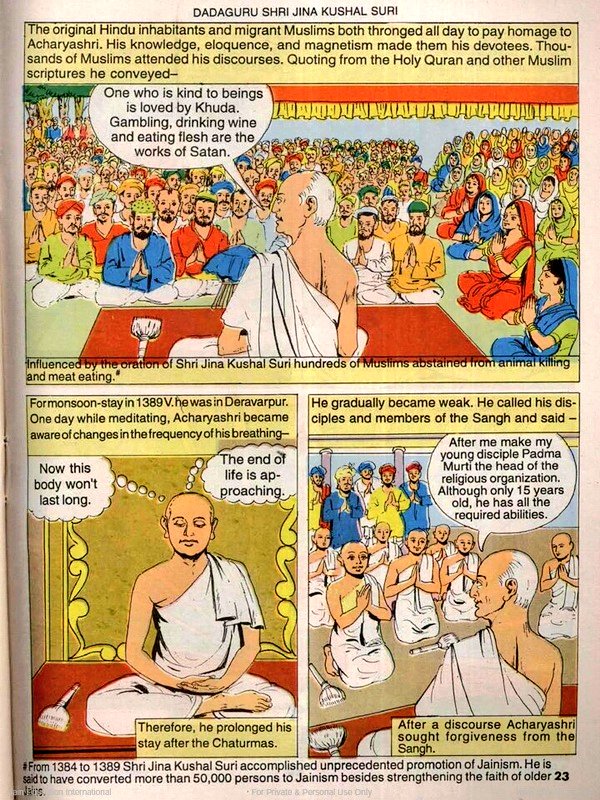
In samvat 1381, Guru Dev had gone to Derawar (Devrajpur) now in #Pakistan for chaumasa. There he realized his life was going to end soon, he retreated to dhyan for his soul. He declared a 15 year old disciple Padam Murti as his successor, and then vowed to fast unto death. 
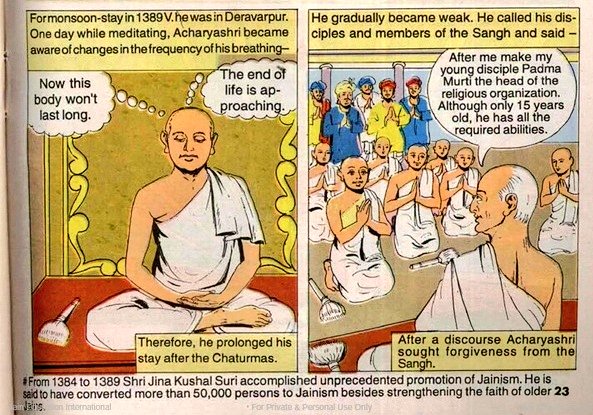
He attained samadhi on the 5th day of Amavaas of the lunar month of Phalgun (Feb/March). Since then he's been prone to appearances in many people's visions. The most celebrated of these, occurred in Sindh when Samaysundar & his companions tried to cross the Panch river in a boat. 

A great storm blew up the boat, it was on the verge of sinking. Samaysundar meditated on Jin Kushal Suri ji & immediately his devatma appeared & saved the boat. This episode is a staple of the hagiographies & frequently portrayed in illustrations of Dadagurus' deeds in temples. 

Var Singhji, minister of Bikaner, was eager to visit Deraur where Dada Jin Kushal Suri had breathed his last but occasional obstacles obstructed him from getting there. He had immense faith in Gurudev, & one day Dada Guru appeared to him at Nal, 8 miles away from Bikaner. 

He told him that he could go to Deraur & no obstacle would stop him. He was immensely happy & got a big temple built there. Even today, the place has miraculous powers & many devotees have seen Gurudev there, especially on Mondays & Poonam.
This is the Samadhi place of Dadaguru Jinkushal Suri ji in Derawar, #Pakistan. Sad to see the state of it, Pakistan must revive these heritage places of religious importance and preserve #history.
#jainism #jain #heritage #India

#jainism #jain #heritage #India


For more info: dadaguru.in/about/jin-kush…
• • •
Missing some Tweet in this thread? You can try to
force a refresh







